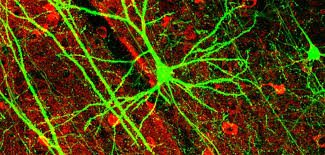
Japanese researchers have found that recurring movements during the slow stages of learning can change the brain area responsible for movement and help individuals maintain these motor skills.
Previous studies have shown that motor learning reorganizes neuronal circles in the primary motor cortex (M1), the brain area responsible for movement; Research has also shown that M1 has a key role in motor memory. However, the following questions were left unanswered:
When does M1 reorganize?
Is the reorganization induced by M1 related to motor memory?
This study has conducted two trials to answer these questions.
Twenty people made the ankle movement based on the movement of the on-screen cursor. Researchers have asked individuals to track the movement of the simulation that appears on the screen with their feet. They recorded input-output curves of motor evoked potentials (I-O curves) that occurred in the front tibial muscle before learning after the fast learning phase and after learning.
Researchers have found that learning can be divided into two phases: fast learning and slow learning. Changes in the excitability of M1 occurred during the slow learning phase and were in correlation with the retention of the engine. There were no changes in M1 irritability immediately after the fast learning phase. Also, researchers also noted the correlation between the length of a slow learning phase and changes in excitability M1, as well as between the degree of retention of motor skills and learning-induced change.
"We suggest that the changes in irritability M1 reflect the creation of strong neural networks, that represent optimal motor drives. This phenomenon occurs during the phases of learning slower learning of motor skills, as optimal motor drives, during this phase have been used several times," said Dr. Kozo Funase Professor at the High School of Integrated Arts, Science and Science, Hiroshima University in Japan.
Professor Funase also suggested that the results be used to produce instructional materials and instructions for poor physical exercise, as well as to develop a training program for those who already master the exercises.
Downvoting a post can decrease pending rewards and make it less visible. Common reasons:
Submit
Congratulations @grace234! You received a personal award!
You can view your badges on your Steem Board and compare to others on the Steem Ranking
Vote for @Steemitboard as a witness to get one more award and increased upvotes!
Downvoting a post can decrease pending rewards and make it less visible. Common reasons:
Submit
Thanks
Downvoting a post can decrease pending rewards and make it less visible. Common reasons:
Submit